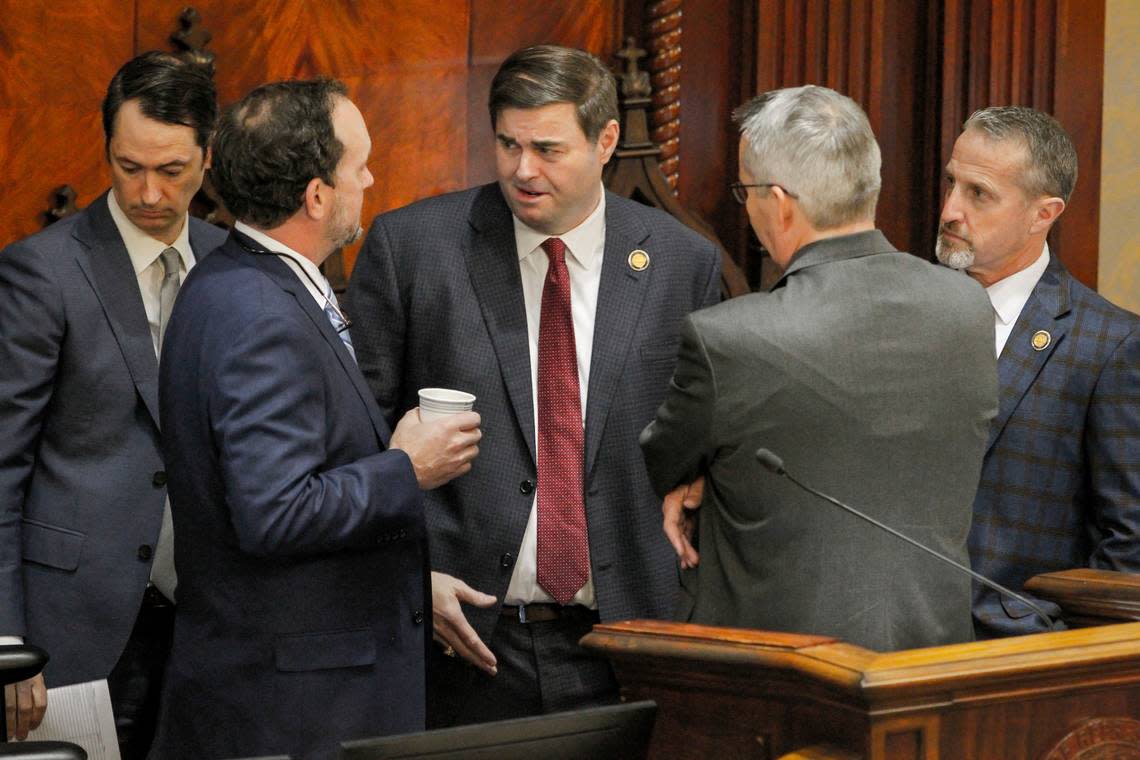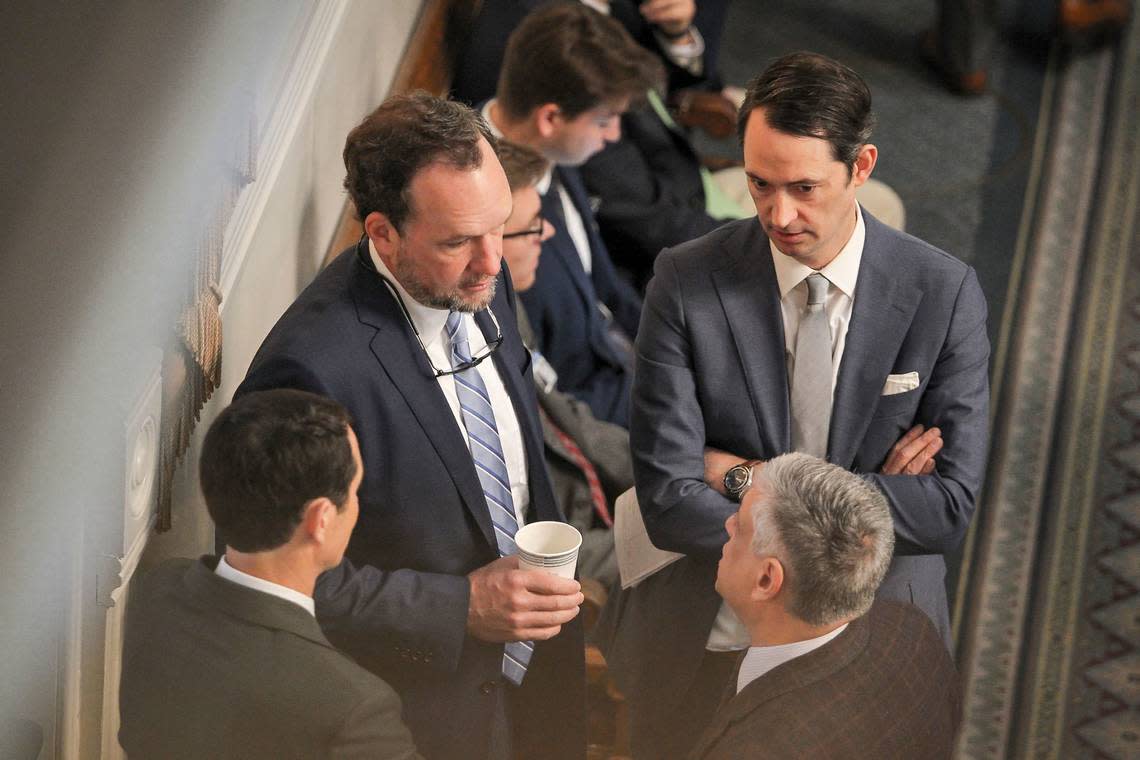SC House approves budget with raises for teachers, state employees. Here’s how much
Starting salaries for teachers and state employee pay could both increase by $2,500 under a House budget adopted Wednesday.
The $13.8 billion spending plan is still several steps before final approval, but the $124 million planned for state employee raises is the largest in state history.
Under the House budget, state employees earning less than $83,000 will receive a $2,500 raise. Those earning more than $83,000 will receive a 3% raise. For those earning less than $83,000 a year, the percentage raise is larger to help them deal with the effects of inflation.
State Rep. Gilda Cobb-Hunter, D-Orangeburg, a long proponent of pay increases for state employees, said she hoped the Senate would do more for state employees.
“For too many years, the House has taken care of state employees and the Senate has, shall we say, left some room for improvement,” Cobb-Hunter said.
Law enforcement, corrections officers, nurses and mental health professionals employed by the state also will be in line for recruitment and retention raises, as the state struggles to fill those positions.
“We were short on a lot of the specific positions, doctors, nurses, correction officers, law enforcement and our teachers,” said Ways and Means Chairman Bruce Bannister, R-Greenville. “It was better financially to go out of state or in the private sector than work for South Carolina. We’ve made changes this year in this budget that will rectify those problems.”
State employees on the state health plan also won’t see a health care premium increase for a decade because the state would pay $121 million toward the premium hike, under the budget plan.
The budget passed by the House also takes into account the second year of a phased in income tax cut, which keeps about $96 million out of state coffers, as well as a $1.3 billion incentive package for Scout Motors, which has been approved by both chambers and awaits the governor’s signature. Scout Motors announced earlier this month that it would build a car manufacturing plant in Blythewood that would eventually employ at least 4,000 workers.
House members also approved spending $200 million to accelerate bridge repair work in the state Department of Transportation’s 10-year plan, and an additional $200 million to bring water, sewer and road improvements to large sites to attract businesses to South Carolina.
Medicaid and Medicare spending also would increase by $196 million because with South Carolina’s economy doing so well, the amount the federal government matches for the two state health insurance programs is decreasing. Premiums and reimbursement rates also are going up, leading to the higher costs.
The House approved spending $69 million to freeze tuition rates for in-state students at the state’s colleges and universities and an additional $15 million for a tuition freeze at the state’s technical colleges, as well as an additional $280 million for LIFE, HOPE and Palmetto Family Fellows scholarships, as well as $100 million for the workforce development scholarships through the state’s technical colleges.
“We made sure that we prioritized businesses and making sure that we’re giving an ample workforce to our businesses through a number of programs,” said Speaker of the House Murrell Smith, R-Sumter.
As part of the education spending, the budget allocates an additional $261 million toward state aid to classrooms, which pays for teacher salaries. Teachers in most school districts also would be in line to see a pay hike as part of the House budget.
The minimum pay for teachers also would increase by $2,500 and bring the state starting pay to $42,500. Each cell in the teacher salary schedule, which pays teachers based on their years of experience and education levels, also would increase by $2,500.
This would guarantee raises in 46 out of 78 school districts that pay less than the proposed higher salary schedule. Other school districts may use local dollars to pay teachers more, but would have the ability to increase salaries too.
Teachers also would see their supply stipends increase to $350 from $300, which would cost about $3 million.
Increasing teacher pay has been seen as a way to help address the growing teacher shortage in the state. Gov. Henry McMaster backed the $2,500 pay increase and wants to bring the starting salary up to $50,000 by 2026.
“We committed to do that over time, and that’s what we’re doing kind of like the tax cut,” Bannister said. “We could have funded that all at once but decided that it would be a more prudent budgeting process to do it a little bit at a time, because the last thing we want to do is make a big promise and then not be able to follow through on it.”



